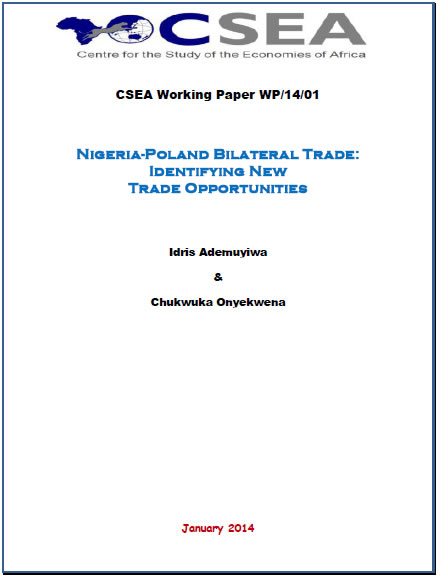The import and export indicators reveal low trade intensities between the twocountries as well as weak complementarity between Polands importdemand and Nigerias export supply. There is also evidence of rising growth inthe demand for products in which Nigeria has actual and potential exportcapacity. In addition, Nigeria faces relatively lower tariffs on Polands topimports while the cost of transportation and logistics associated with tradingwith Poland is lower than those of Nigerias current major export partners suchas India and Brazil.
Furthermore, the paper identifies enormous unexploited market opportunitiesavailable to Nigeria for trading with Poland and therefore recommends that,in its quest for industrialization, the Nigerian government should support itsprivate sector to take advantage of this opportunity.

